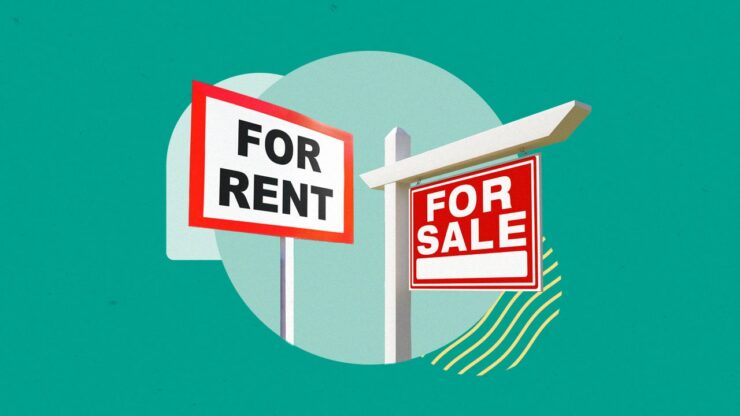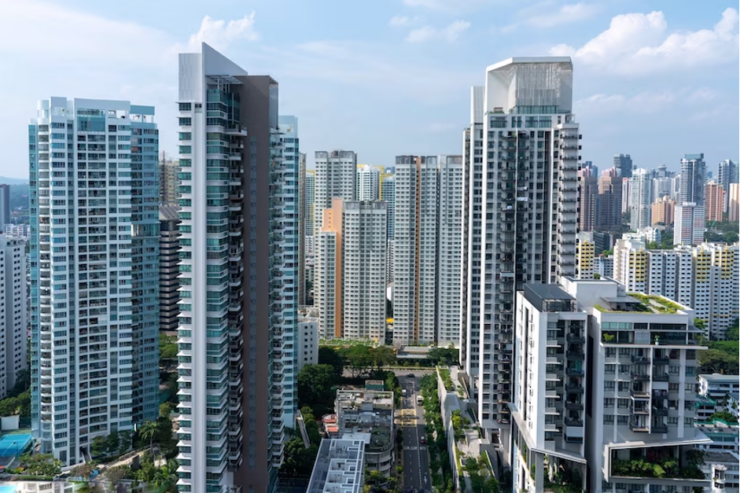Making housing decisions in Singapore is like choosing between a penthouse view and ground-floor practicality. Each choice offers unique advantages and challenges. Buying gives you long-term ownership but comes with financial responsibilities. Renting allows flexibility but doesn’t build equity. The best decision depends on your goals, finances, and lifestyle preferences.
Key Points
- Assess personal goals and financial readiness.
- Understand market trends and property values.
- Compare long-term costs of renting and buying.
- Evaluate lifestyle needs and future plans.
- Consider government regulations and subsidies.
Buying vs Renting: Why Your Goals Matter

Your housing choice should align with your personal and financial goals. For example, if you plan to settle down or invest in real estate, purchasing a property makes sense. However, if flexibility or a lower upfront cost matters more, renting might be a smarter move.
Owning Property: The “I Do” of Housing Choices
Buying property in Singapore is like committing to a long-term relationship. You’re saying, “I’m ready to invest my resources and reap the rewards.” Property ownership builds equity, often appreciates in value, and offers stability.
Key benefits include:
- Ownership builds wealth over time.
- The potential for rental income if you invest in additional properties.
- Stability in a fluctuating market.
Renting: A Temporary But Flexible Option
Renting is like dating the housing market. It allows low commitment, giving you freedom to move or adjust your living situation without the heavy financial burden of a mortgage.
Key advantages include:
- Lower initial costs and no maintenance responsibilities.
- Greater flexibility to relocate.
- Easier access to prime locations at a lower cost.
A Promising Option for Buyers
The Elta development is a standout project by MCL Land and CSC Land. With a focus on innovative design and sustainable living, this project offers strategic location advantages and quality construction. It’s an excellent example of modern residential development in the city, tailored to those who prioritize long-term value.
Projects like Elta often appeal to buyers seeking both functionality and aesthetic appeal. The reasonable land acquisition cost makes it a competitive choice for homeownership.
Market Trends and Insights: Why Timing Matters

Housing prices in Singapore often reflect broader economic conditions. Recent trends show rising interest in eco-friendly developments and properties with integrated community spaces. Like a well-crafted building, the market’s foundation is stable, but there are occasional twists.
Factors Driving the Market
- Government Policies: Cooling measures often stabilize property prices, making housing accessible.
- Interest Rates: Low rates mean borrowing costs are lower, which can make buying more attractive.
- Demand for Prime Locations: Central areas remain in high demand, influencing rental and purchase costs.
Costs Comparison: Renting vs Buying
Upfront Costs for Buyers

- Down payment: Typically 20%-25% of the property value.
- Additional fees: Legal costs, stamp duties, and renovations.
Ongoing Costs for Buyers
- Mortgage payments: Fixed monthly expenses.
- Maintenance and property taxes.
Costs for Renters
- Security deposit: Usually 1-2 months’ rent.
- Monthly rental payments: No long-term equity gained.
Consider the numbers carefully. Renting may appear cheaper initially, but the long-term costs of not owning can outweigh the benefits.
Lifestyle Considerations: What Suits You?
Long-Term Plans
If you’re planning to stay in one place for years, ownership offers stability. Buyers often enjoy customizing their homes to reflect personal tastes, which isn’t an option for renters.
Career Mobility
For those with jobs that require frequent relocations, renting is more practical. It’s like leasing a car instead of buying one—less hassle, less commitment.
Tips for Making the Right Decision
- Assess Your Financial Readiness: Use tools like affordability calculators.
- Research Government Schemes: Singapore’s housing policies often offer grants or subsidies for eligible buyers.
- Factor in Market Conditions: Buy during dips or stabilize your budget for rentals.
- Think About Your Future: Consider family, career, and lifestyle changes.
- Consult Professionals: Real estate agents and financial advisors provide valuable insights.
Common Pitfalls to Avoid
Overextending Your Budget

Like choosing a flashy condo you can’t maintain, buying beyond your means can lead to financial strain.
Ignoring Market Trends
The market’s mood matters. A hasty decision can cost you future gains.
Neglecting Lifestyle Needs
A centrally located property might sound great, but if it doesn’t suit your daily commute or family needs, it’s a mismatch.
Conclusion: Deciding with Confidence
Choosing between buying or renting comes down to personal goals and practical considerations. Each option has its strengths and suits different stages of life. By understanding costs, lifestyle needs, and market trends, you can make an informed decision.
Remember, like a well-priced property, opportunities don’t stay on the market forever. Whether you decide to rent or buy, act with confidence and ensure it’s the right choice for your future.

